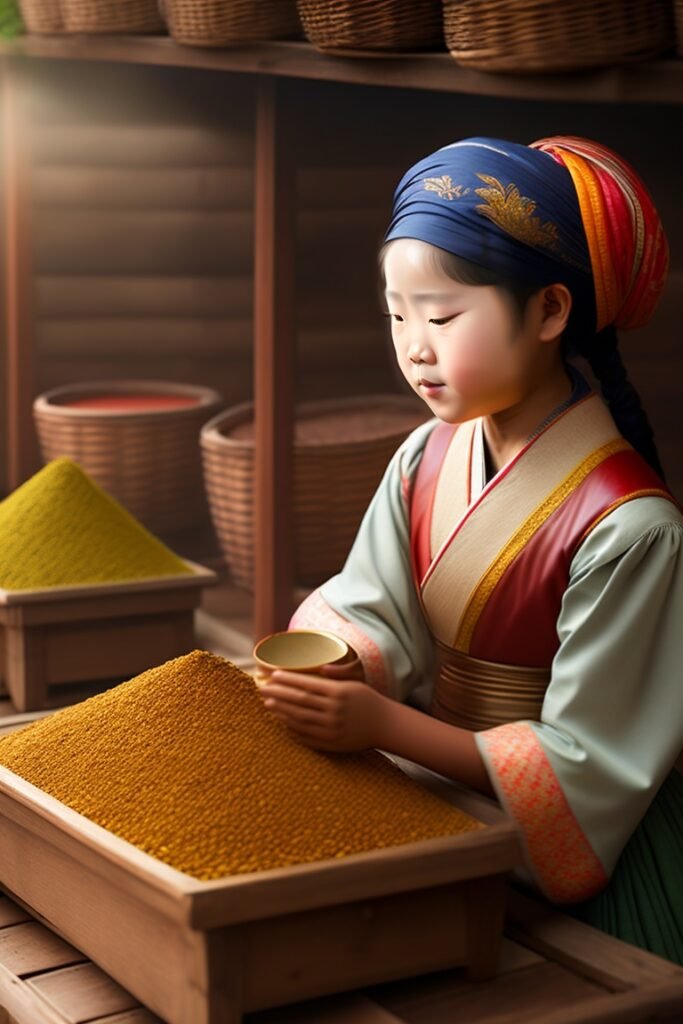In a world where cultures converge over shared cups of warmth and flavor, the international tea market stands as a testament to the global unity brought forth by a simple yet profound beverage. From the tranquil tea gardens of Asia to the bustling tea houses of Europe, the international tea market paints a vivid tapestry of flavors, trade relations, and cultural exchanges. This article delves into the nuances of the international tea market, examining its trends, challenges, and growth prospects that shape the way we sip and savor tea across borders. Exploring the Dynamics of the International Tea Market: Trends, Challenges, and Growth Opportunities

- Introduction
- The Global Appeal of Tea: A Historical Perspective
- Tea Varieties and Their Global Footprint
- Trade Relations and the Complexities of International Tea
- Consumer Preferences and the Melting Pot of Tea Culture
- Challenges and Opportunities in the Global Tea Industry
- Innovation and Technology: Shaping the Tea Industry’s Future
- The Rising Importance of Certification and Quality Assurance
- Future Projections and the Continuation of Tea’s Global Odyssey
- Conclusion
- FAQs
Introduction
The aroma of steeping tea leaves transcends geographical boundaries, uniting tea enthusiasts worldwide. The international tea market, a bustling hub of trade and cultural exchange, plays a pivotal role in making this unity possible. From the foothills of China to the plantations of Kenya, the journey of tea from leaf to cup is a testament to human connection and shared experiences.
The Global Appeal of Tea: A Historical Perspective
Tea’s journey dates back to ancient times, when it was first discovered in China. Its popularity soon spread along the ancient Silk Road, reaching different corners of the world. From Japan’s delicate matcha rituals to Britain’s afternoon tea traditions, the global appeal of tea is steeped in history and culture.
Tea Varieties and Their Global Footprint
Exploring Classic Black Teas
Black tea, with its robust flavors and invigorating qualities, has been a staple in many cultures. Assam tea from India, Ceylon tea from Sri Lanka, and Keemun tea from China are among the classic black teas that have earned a permanent place in the hearts of tea enthusiasts worldwide.
The Rise of Green and White Teas
Green tea’s earthy undertones and health benefits have propelled its popularity across the globe. Meanwhile, delicate white teas, known for their subtlety and purity, have also found their niche among those who appreciate the art of tea craftsmanship.
Specialty and Herbal Teas: A World of Possibilities
The international tea market has witnessed an explosion of specialty and herbal teas. From chamomile to hibiscus, chai to matcha, these teas cater to diverse tastes and preferences, reflecting the multicultural landscape of tea consumption.
Trade Relations and the Complexities of International Tea
Traditional Tea Exporting Nations
Nations like China, India, Sri Lanka, and Kenya have historically been key players in tea production and trade. Their teas have set benchmarks for quality and flavor, shaping global tea preferences for generations.
Emerging Players in the Global Market
In recent years, countries like Japan, Taiwan, and even Nepal have emerged as contenders in the international tea market. Their unique teas, often steeped in local traditions and terroirs, bring novel flavors to the global stage.
Consumer Preferences and the Melting Pot of Tea Culture
The Role of Cultural Diversity
Tea’s ability to adapt to cultural contexts is a testament to its versatility. It seamlessly blends into rituals, ceremonies, and daily routines across cultures, creating a universal bond.
Adapting to Modern Lifestyles
In the modern era, tea has evolved to meet the demands of fast-paced lives. Ready-to-drink teas, tea bags, and innovative tea-based beverages cater to convenience-seeking consumers without compromising on flavor.
Challenges and Opportunities in the Global Tea Industry
Sustainability and Ethical Sourcing
As consumers become more conscious of their choices, sustainability and ethical sourcing have taken center stage. The tea industry faces the challenge of ensuring environmental responsibility and fair labor practices.
Navigating Fluctuating Market Trends
The international tea market is not immune to trends. From health-focused superfoods to unique tea blends, industry players must stay agile to keep up with evolving consumer preferences.
Innovation and Technology: Shaping the Tea Industry’s Future
Innovation has revolutionized the tea industry, from modernized harvesting techniques to precision-controlled processing. Technology ensures that the essence of tea remains intact while increasing efficiency.
The Rising Importance of Certification and Quality Assurance
Certifications like Fair Trade and Organic have gained prominence, assuring consumers of responsible production practices. Quality assurance not only safeguards consumer health but also supports the livelihoods of tea-producing communities.
Future Projections and the Continuation of Tea’s Global Odyssey
The journey of tea is far from over. With increasing consumer awareness and a growing appreciation for the nuances of tea, the international tea market is poised for continued growth and diversification.
Conclusion
As we sip on our favorite brews, we become part of a global legacy—a legacy that spans cultures, continents, and centuries. The international tea market is not just about commerce; it’s about bridging gaps, fostering connections, and celebrating the diverse flavors that unite us all.
FAQs
- Is tea consumption uniform across different cultures? No, tea consumption varies widely across cultures, reflecting unique traditions and preferences.
- What are some emerging tea trends in the international market? Emerging trends include the rise of specialty teas, sustainable sourcing, and the fusion of tea with culinary experiences.
- How does technology impact the tea industry? Technology enhances efficiency in tea production, ensuring consistency while accommodating modern demands.
- Are there any health benefits associated with different types of tea? Yes, different types of tea offer various health benefits, from antioxidants in green tea to relaxation effects in herbal teas.
- What role does innovation play in the global tea market? Innovation drives product diversification, quality improvement, and sustainability efforts in the tea industry.
Contact Details:- 9499347308
Visit Our Site:-zirconshop.in
Official YouTube Channel For Business :- Zircon Blogs
